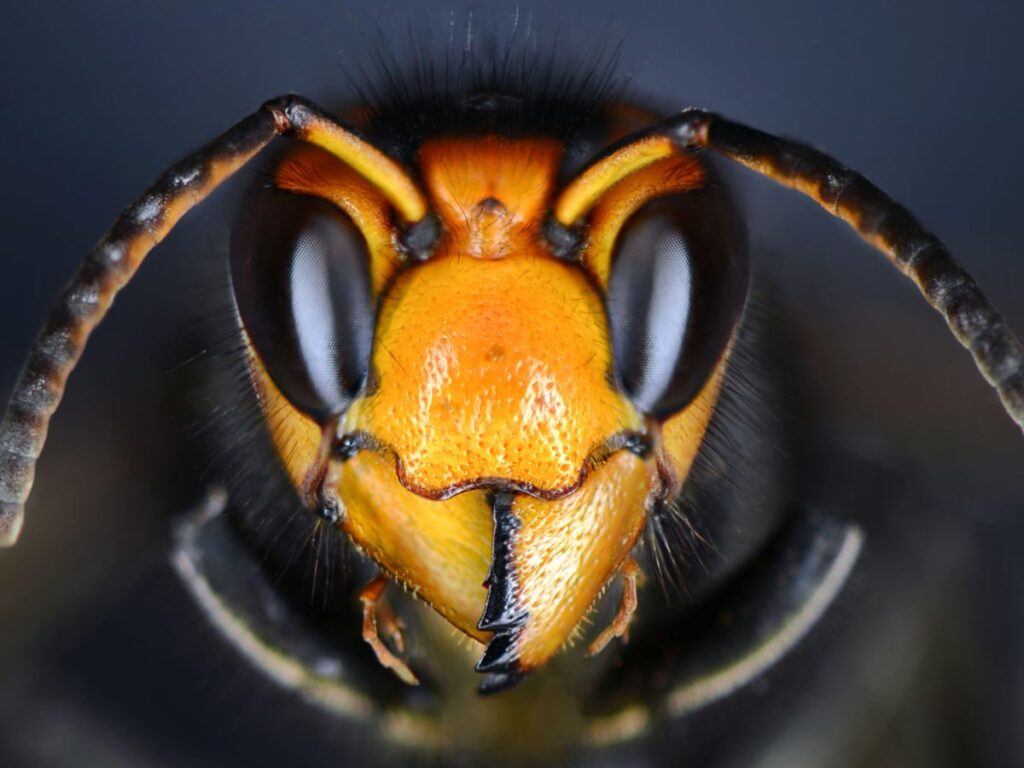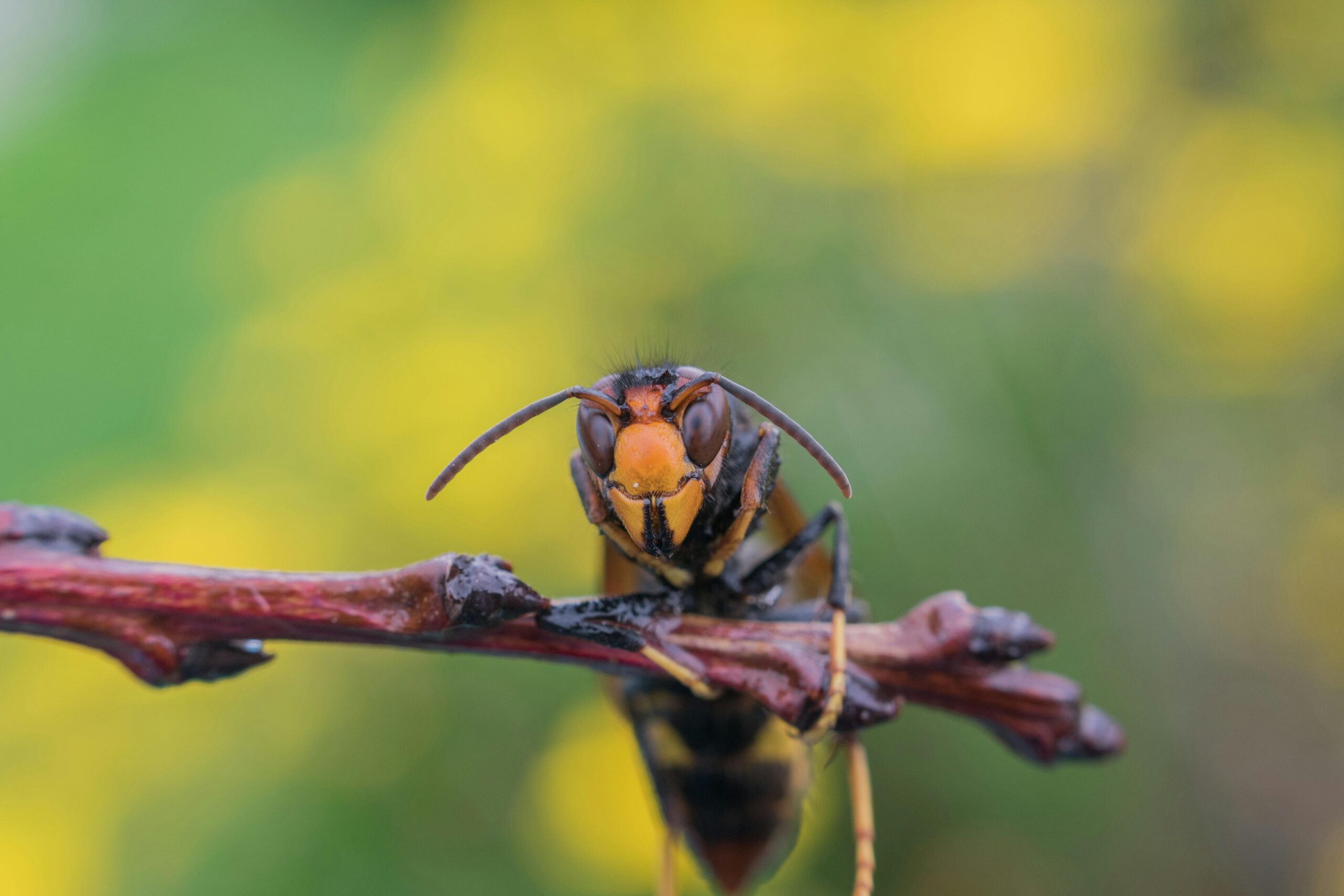
Having problems with Asian Hornets?
As of 25th July 2025, there have been 73 confirmed sightings of the yellow-legged hornet across England, with 28 nests discovered and dealt with. These figures highlight the growing presence of this invasive species, which poses a significant threat to native pollinators and ecosystems. Vigilance and early reporting remain essential.
Asian Hornet Identification and Control
The Asian Hornet (Vespa velutina), also known as the yellow-legged hornet, is an invasive species originally from East Asia. In the UK, the main concern is not day-to-day nuisance — it’s the impact on native pollinators, particularly honey bees, which support ecosystems and food production.
Why Asian Hornets Are a Concern
- Threat to bees and pollinators: Asian hornets can hunt honey bees and other insects, reducing pollination and ecosystem health.
- Knock-on environmental impact: Fewer pollinators can affect plant reproduction, biodiversity, and crop yields.
- Nest defence: They can defend nests if disturbed, increasing sting risk in the immediate area.
How to Identify an Asian Hornet
- Body: Dark brown/black overall with an orange band on the fourth segment of the abdomen.
- Legs: Distinctive yellow tips (hence “yellow-legged hornet”).
- Compared to a European hornet: European hornets are generally larger and have bold yellow striping and a more reddish-brown thorax.
What To Do If You See One
Do not approach, disturb, or attempt to treat a nest.
Use the ‘Asian Hornet Watch’ app, or email photos/videos to alertnonnative@ceh.ac.uk.
If there’s a suspected nest on your property, contact a professional pest controller for safe, compliant action.
Where They Build Nests
Asian hornets often build large, egg-shaped paper nests high in trees, under rooflines, or in sheltered outdoor areas. Occasionally, nests can also appear in sheds, garages, or loft spaces.
Reducing Attraction Around Your Property
- Avoid leaving sugary foods/drinks uncovered outdoors (especially in summer).
- Seal rubbish bins tightly and clear spillages quickly.
- Consider fitting fine mesh screens on doors/windows to reduce indoor entry.
- Check sheltered corners, eaves, and outbuildings for early nest activity.
Are They Dangerous To Humans?
Asian hornets are generally not aggressive towards humans, but they will defend their nest if disturbed and can sting multiple times. Stings are painful and, in rare cases, can trigger allergic reactions — especially if someone is stung repeatedly or has a known sensitivity.
Need Advice?
If you’re unsure whether what you’ve seen is an Asian hornet, report it first, then contact Shire Pest Solutions if you need support or safe on-site guidance.



Asian Hornet Control FAQ
More About Shire Pest Solutions
Shire Pest Solutions is a trusted and local pest control company proudly serving homes and businesses across Oxfordshire and beyond. With a reputation built on professionalism, reliability, and fast response times, we specialise in the safe and effective removal of pests including ants, wasps, rats, mice, glis glis, bed bugs, and more.
Our expert technicians are fully qualified and equipped with the latest tools and treatments to ensure pest problems are resolved quickly and safely—without unnecessary disruption. Whether it’s a minor domestic issue or a large-scale commercial infestation, we tailor our services to meet your needs with minimal fuss and maximum effectiveness.
Based locally, we regularly assist customers in Didcot, Wallingford, Abingdon, Wantage, Witney, Newbury, Thame, Thatcham, and Stokenchurch. Our knowledge of the local area enables us to provide rapid call-outs and treatments that are suited to the unique pest challenges of each location.
At Shire Pest Solutions, we don’t just eliminate pests—we help prevent them from returning. With transparent pricing, no hidden fees, and a dedication to customer satisfaction, we are the go-to pest control provider for homeowners, landlords, and commercial clients alike.
Get in touch today to arrange a call-out or learn more about our pest control services across Oxfordshire and surrounding areas.


Recent Comments